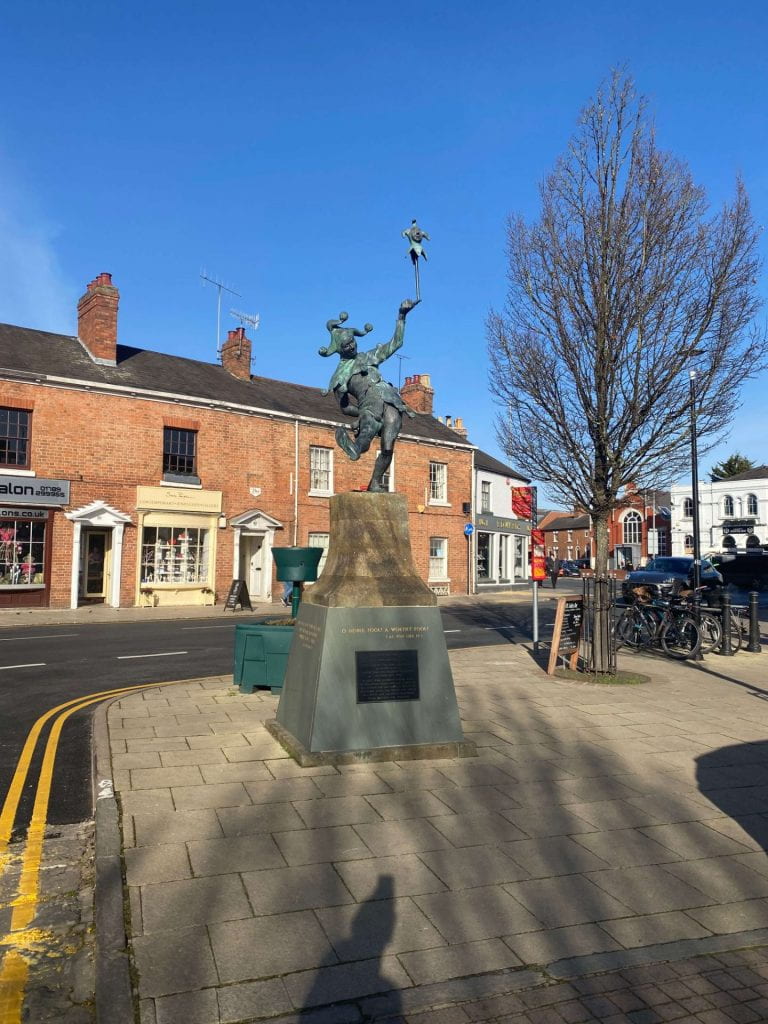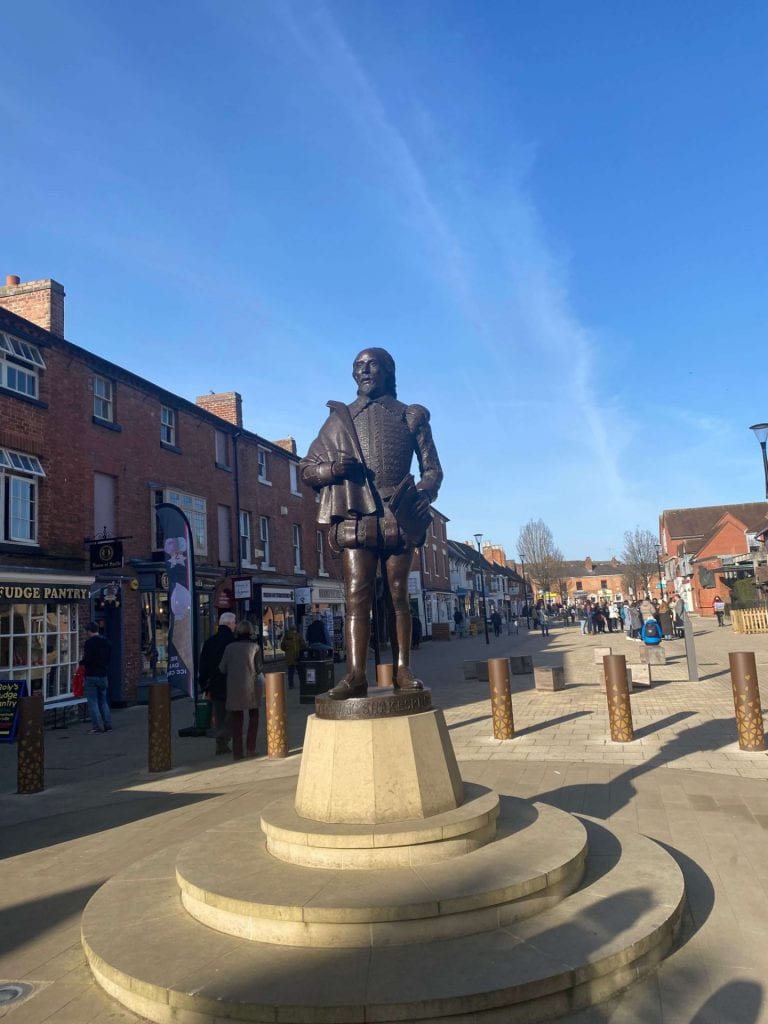Shaking Up Shakespeare
Stratford-Upon-Avon is a small English town approximately an hour and thirty minutes from London. The charming town is made up of a combination of modern architecture and shops set in buildings dating back to the 16th century. Walks along the bank of the River Avon through its green, scenic parks make for a wonderful time for families or a person looking for some peace from the hectic city of London.
Oh, and most importantly, it is the birth and death place of the famous writer William Shakespeare.
William Shakespeare’s presence in Stratford-Upon-Avon overwhelms every corner of the town. Signs hung on buildings, plaques attached to sidewalks, and random artifacts detail how they played a role in Shakespeare’s life. Statues of Shakespeare stand flamboyantly in the entrance of the town greeting newcomers into his home, quotes from his plays are carved and scattered to remind visitors yet again where they are. Overall, there is not a corner of Stratford without the name Shakespeare.

Which leads to a further question: why?
Throughout my time in Stratford-Upon-Avon, I kept repeating the same question to myself: what about this man has led to an entire town and country to be dedicated to his memory?

First, William Shakespeare has been idolized in all my English classes in the United States. I recall spending weeks taking apart and piecing back together his plays and sonnets, learning how to follow their patterns and (poorly attempting) to understand Elizabethan English. Throughout lessons, Shakespeare remained as a myth and legend — a man who created new forms of writing that still resonate with an audience centuries later, a fantasy that people across the world performed pilgrimages to his hometown to feel a moment of connection with. And I sit here to tell you that throughout my few years of reading Shakespeare and the time I spent in his town, it is still difficult for me to understand how we could have inflated him to become such an icon.
I can recognize the value of being multi-disciplined in reading and writing, along with appreciating the work of playwrights, but William Shakespeare sitting on the pedestal of English language has never sat right with me. He remains to me another upper-class white man that has been put into a glass-case by other white upper-class people, which has resulted in Shakespeare becoming a hurdle that other non-white writers must face in making their art.
And, while I understand the reality of Shakespeare is not as black and white, throughout my time in Stratford-Upon-Avon I could not help but feel that William Shakespeare’s name has become a weapon. For the town he lives in, it is used to capitalize and humanize his legacy, and to the field of writing he has become both an idol and a hurdle for those across the globe.





